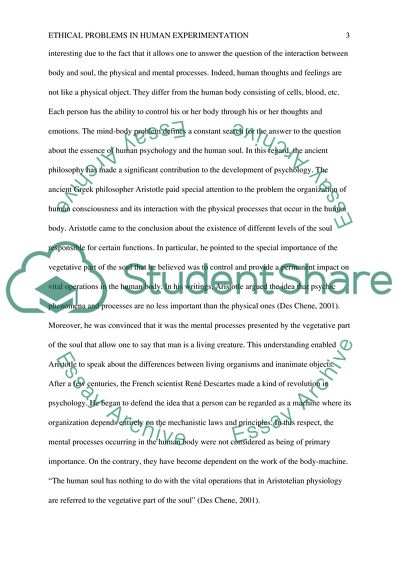Cite this document
(The Further Development of Human Experimentation Essay Example | Topics and Well Written Essays - 1500 words, n.d.)
The Further Development of Human Experimentation Essay Example | Topics and Well Written Essays - 1500 words. https://studentshare.org/philosophy/1696146-the-further-development-of-human-experimentation
The Further Development of Human Experimentation Essay Example | Topics and Well Written Essays - 1500 words. https://studentshare.org/philosophy/1696146-the-further-development-of-human-experimentation
(The Further Development of Human Experimentation Essay Example | Topics and Well Written Essays - 1500 Words)
The Further Development of Human Experimentation Essay Example | Topics and Well Written Essays - 1500 Words. https://studentshare.org/philosophy/1696146-the-further-development-of-human-experimentation.
The Further Development of Human Experimentation Essay Example | Topics and Well Written Essays - 1500 Words. https://studentshare.org/philosophy/1696146-the-further-development-of-human-experimentation.
“The Further Development of Human Experimentation Essay Example | Topics and Well Written Essays - 1500 Words”. https://studentshare.org/philosophy/1696146-the-further-development-of-human-experimentation.


